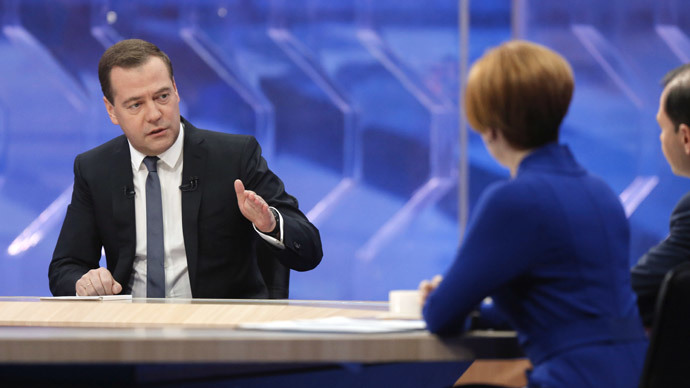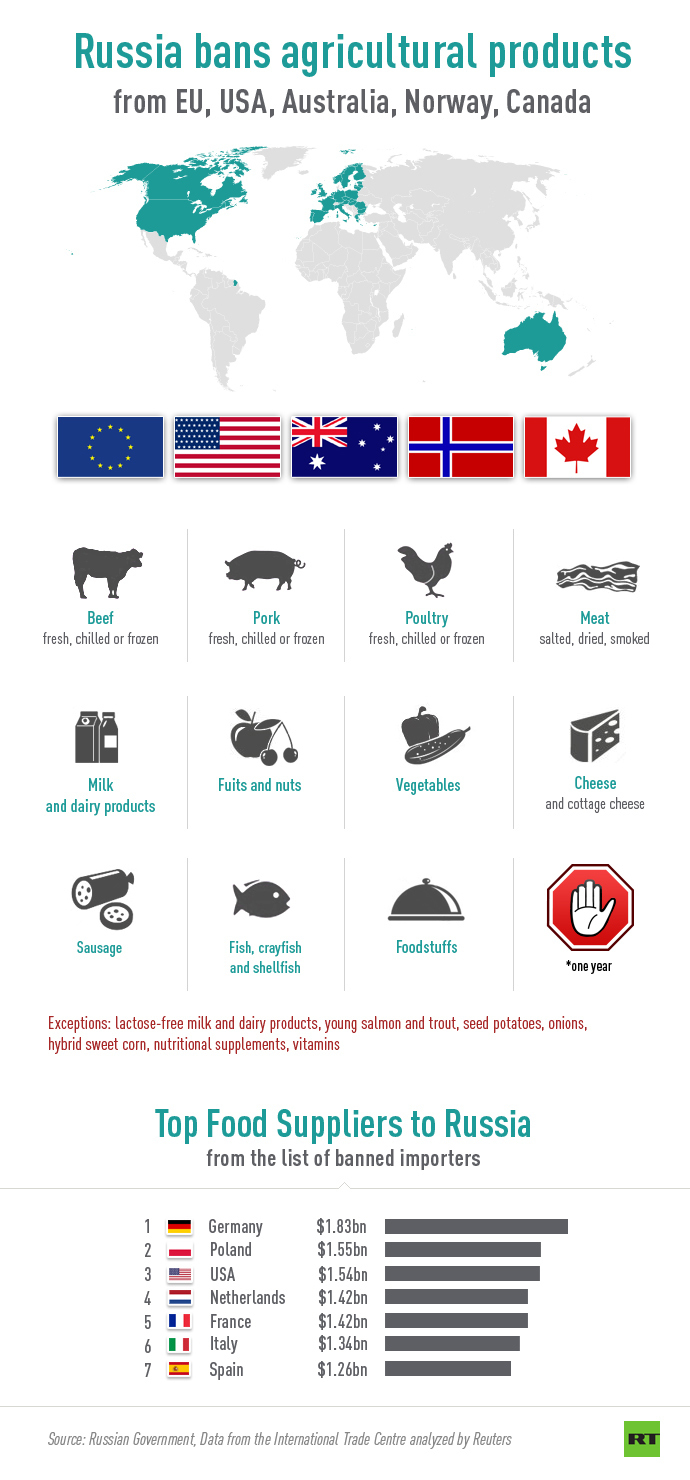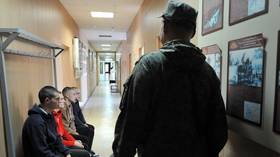Russia can completely do away with foreign food imports 'mid-term' - PM

In a couple of years Russia will be able to substitute 100 percent of “unnecessary” food imports, Russia’s Prime Minister Dmitry Medvedev said during a live TV interview Wednesday.
“We are able to fully replace needless imports in the mid-term,” said Medvedev.
He said the shift won’t be immediate, but the good thing is that shelves in the stores throughout Russia have already become full of domestically made produce.
READ MORE: Russia bans agricultural products from EU, USA, Australia, Norway, Canada
“We are serious people and we’ve never said that we’d get all Russian agricultural items the next day after introducing response measures [to Western sanctions – Ed.],” he said adding that the goal of filling shelves with domestic production is gradually being achieved.
Medvedev said that a couple of months ago stores were full of foreign products.
“It would have been a different matter if these were some delicacies, or what we don’t produce at all. But these were ordinary goods, such as meat, fish, fruit and vegetables,” he said.

Talking about meat, the Prime Minister said that 100 percent of the poultry on Russian shelves is now domestically reared, along with 85 percent of pork, and 70 percent of beef.
“This is the niche we are obliged to fill,” he said.
Last week Russia temporarily banned all poultry imports from the US, saying they contained “harmful” and “illegal” substances.
READ MORE: Russia limits American poultry imports
Medvedev said it is a complicated process due to the decade-long cycle of cattle production.
“That’s why we need loans, and we will be pushing for a reasonable interest rate for our agricultural producers by means of a subsidy,” he said.
He added the government has allocated $3.5 billion from the budget to support the agricultural sector in 2014, and nearly the same amount will be provided next year.
The Prime Minister said he was aware that the food embargo is being violated by some countries, as Russian stores still sell banned Polish apples disguised as Serbian.
“We understand it’s hard to fully shut off supplies but it’s wrong, and the customs service, as well as other agencies, is working on that,” he said.
“But the issue is not about the illegal supply. We need to create our own reserves, grow in our own gardens, and build greenhouses. The Polish managed to do it. Is their climate better than ours?”
Overall, a “sanctions war” benefits nobody, as it costs tens of billions of dollars in losses to both the Russian and EU economies. The European economy lost €40 billion (almost $50 billion) this year and is likely to lose €50 billion ($62 billion) in 2015, he said.












